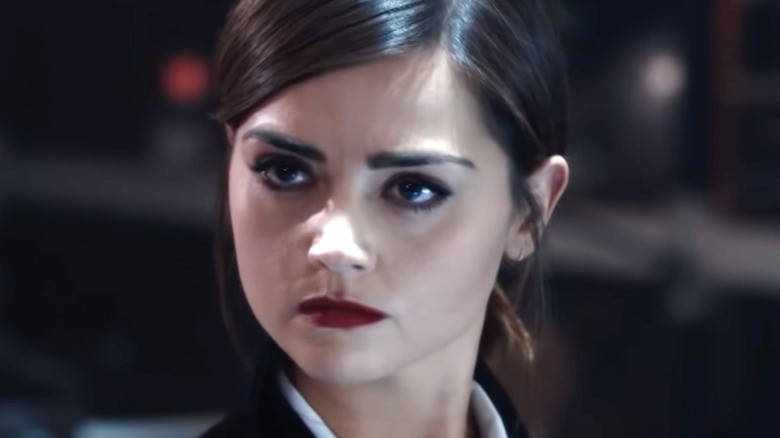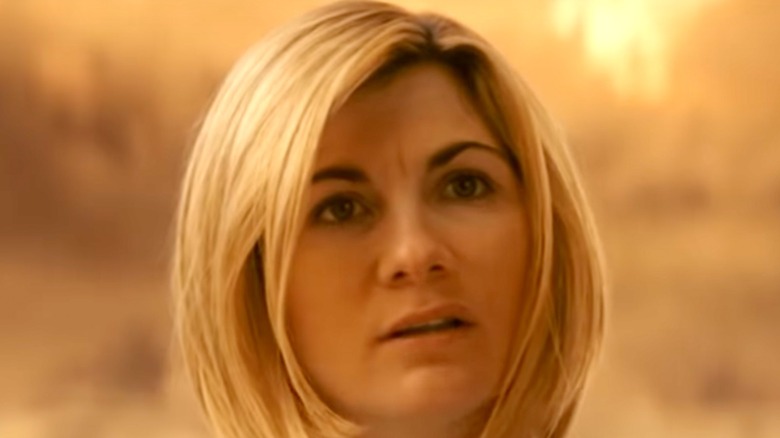How Doctor Who Could Have Been A Completely Different Series
As the longest-running science fiction show on television, "Doctor Who" has won generations of fans over with its time-traveling adventures. Like Sherlock Holmes before him, The Doctor is an iconic figure in British culture, his Tardis and sonic screwdriver as instantly recognizable as Holmes's deerstalker hat and pipe. Played now by more than a dozen actors, The Doctor is best known for his offbeat humor and his incredible problem-solving skills as he trots across spacetime with his trusty companions, encountering aliens and monsters on imaginative extraterrestrial landscapes. Just as often, though, the show finds ways to find awe and wonder while grounded on Earth.
It's hard to imagine "Doctor Who" as anything other than what it is today. The classic Holmes setup of an incredible hero followed by a more naïve companion who serves as an audience surrogate is a structure which allows The Doctor to explain every marvelous thing happening around him without missing a beat. From Daleks to Weeping Angels, the universe of "Doctor Who" is expansive, and the show's fans are passionate about memorizing its every detail. The whole affair is cohesive on a franchise level, but also an episodic level, with each story given just enough room to breathe. Like "Star Trek" — the most popular science fiction show of that era from across the pond, which has also carried over into the present day — "Doctor Who" feels like the result of rare creative vision regarding what we might find in the reaches of deep space.
But as it turns out, the history of "Doctor Who" began with a completely different vision for the show, one which would have made it altogether an entirely different series.
Doctor Who was originally conceptualized as a children's educational show
It turns out that when "Doctor Who" was first conceived in the early 1960s, it was intended to be an educational program aimed at teaching kids about science and history, in order to fulfill The BBC's public mandate, which stipulated a balance of information and entertainment (via Open Culture). Though the show's first season in 1963 attempted to keep the educational aspects front and center — beginning with the show's first four-part series, "An Unearthly Child" — the public clearly was more interested in fiction than science. So, in Season 2, the Daleks were introduced, and the show began to take the form we know and love today, full of bizarre aliens and otherworldly adventures.
However, the tradition of historical education remains engrained in the DNA of "Doctor Who" — even in the many seasons of modern "Who" which began in 2005. Under the watch of once and future showrunner Russell T. Davies, responsible for overseeing the height of the modern reboot's popularity, fans were given episodes such as "The Shakespeare Code" and "The Fires of Pompeii," which took the Tenth Doctor (David Tennant) and his various companions to the Globe Theater in the 17th century and the eruption of Mount Vesuvius in the 1st century BCE. Departing showrunner Chris Chibnall has used his time with the show to explore the ways history still affects the modern day, most notably in the episode "Rosa," which took the Thirteenth Doctor (Jodie Whittaker) into Montgomery, Alabama during the American Civil Rights movement of the 1950s.

